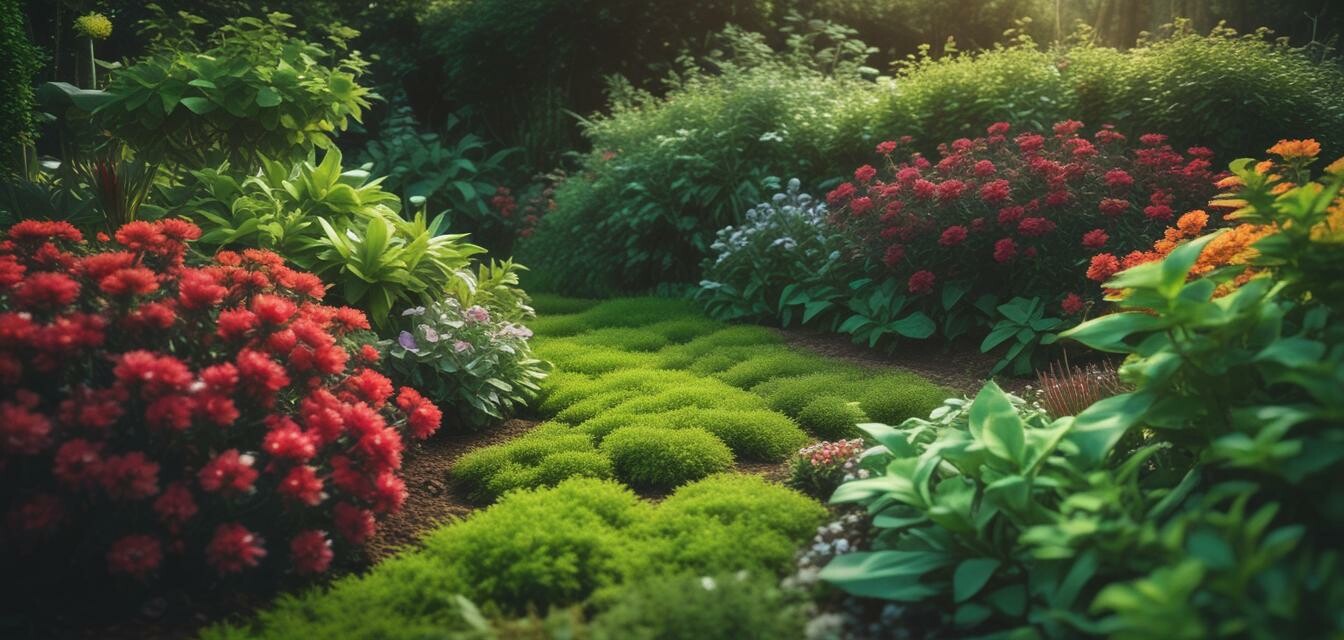
Selecting the Perfect Soil for Your Garden
Key Takeaways
- Understanding soil types is crucial for plant health.
- Components like texture, drainage, and pH level are essential.
- Testing soil before planting can improve growth outcomes.
- Organic matter enriches soil quality and plant growth.
- Always consider the specific needs of your plants when selecting soil.
Choosing the right soil is the foundation of a successful garden. Whether you're tending to vibrant flowers or luscious vegetables, the soil type significantly impacts overall plant health and productivity. This guide will walk you through the different soil types, their characteristics, and how to select the perfect one for your garden, allowing your plants to thrive.
Understanding Soil Types
Soil is made up of various components: minerals, organic matter, air, and water. Different types of soil provide different benefits, and understanding these can shape your gardening experience.
| Soil Type | Description | Best For |
|---|---|---|
| Clay | Heavy and dense soil that retains moisture but drains poorly. | Root vegetables and plants that enjoy moist conditions. |
| Sand | Light and airy soil that drains quickly but lacks nutrients. | Cacti and succulents that prefer drier conditions. |
| Silt | Fine particles that retain moisture and nutrients well. | Most plants, including roses and garden vegetables. |
| Loam | A balanced mixture of sand, silt, and clay, ideal for gardening. | Almost all types of plants, particularly vegetables and flowers. |
Components of Good Soil
A quality soil mixture comprises several components that affect plant growth:
- Texture: Refers to the size of soil particles, affecting drainage and aeration.
- Organic matter: Enhances soil structure, nutrient content, and moisture retention, crucial for healthy plant growth.
- pH level: The acidity or alkalinity of the soil, impacting nutrient availability for plants. Most plants thrive in slightly acidic to neutral pH (6.0 - 7.0).
- Drainage: Important to prevent root rot and other diseases; good soil should allow excess water to escape while retaining moisture for plant use.
Testing Your Soil
Before investing in soil products, it’s wise to test your existing soil. A soil test kit can provide valuable information about nutrient levels, pH, and soil type. Check out our [Buying Guides](https://www.elitelawnandgarden.com/blog/buying-guides) for tips on selecting effective soil test kits.
How to Conduct a Soil Test
- Collect soil samples from different areas of your garden.
- Follow the instructions provided with your soil test kit.
- Analyze the results and adjust your soil composition accordingly, if necessary.
Enhancing Soil Quality
Improving your soil can make a significant difference in your garden's success. Here are some recommended practices:
Tips for Enhancing Soil Quality
- Add organic compost to boost nutrient levels.
- Incorporate mulch to improve moisture retention.
- Rotate crops annually to avoid nutrient depletion.
- Utilize cover crops to enrich soil nitrogen levels.
Selecting Soil for Specific Plants
Every plant has unique soil requirements. Here’s how to choose soil based on your planting goals:
| Plant Type | Recommended Soil Type | Additional Tips |
|---|---|---|
| Flowers | Loamy soil with good drainage | Consider adding a slow-release fertilizer. |
| Vegetables | Rich composted loam | Test pH and enrich with organic matter. |
| Herbs | Sandy loam with good drainage | Keep soil somewhat dry between watering. |
| Succulents | Well-draining sandy soil | Choose specialized cactus soil for best results. |
The Importance of Choosing Quality Soil Materials
Investing in premium soil materials ensures your plants have the best chance to grow strong and healthy. Quality soil supports robust root development, enhances nutrient uptake, and fosters overall plant health. Visit our [Composting & Waste Management](https://www.elitelawnandgarden.com/products/composting-waste-management) page for ideas on enriching your soil organically.
Pros
- Better plant health and yield.
- Reduced need for chemical fertilizers.
- Improved soil structure and fertility over time.
- Environmental sustainability through organic practices.
Cons
- Quality soil products can be more expensive.
- Requires regular maintenance and monitoring.
- May initially require amendments based on plant needs.
Conclusion
Choosing the right soil for your garden is paramount to successful gardening endeavors. By understanding the different soil types, their components, and best practices for enhancement, you're well on your way to creating a thriving outdoor space. Remember to regularly test your soil and adjust accordingly for the healthiest plants. For more gardening insights, explore our [Garden Inspiration](https://www.elitelawnandgarden.com/blog/garden-inspiration) and [News and Trends](https://www.elitelawnandgarden.com/blog/news-and-trends) pages.